Jennifer Pharr Davis
Natural Born Hikers
March 3, 2023
Women of different ages, backgrounds, and hiking experience take to the Appalachian Trail and find strength, solace, and harmony.
When I reflect on my experience as a thru-hiker, record-setter, and as a mother day hiking with her children, I can recall instances when I felt fully aware of my femininity and deeply connected to my sexual identity and, yet, at other times gender differences seemed nonexistent on the Appalachian Trail.
When I set out for my first thru-hike at the age of 21, I was bombarded with questions from friends and family concerning my safety as a single female. I wasn’t overly worried about my personal wellbeing before everyone else told me that I should be. My greatest worries going into the hike were how I would deal with being cold and wet or bored and lonely; but most of my loved ones worried about who I would meet on the Trail.
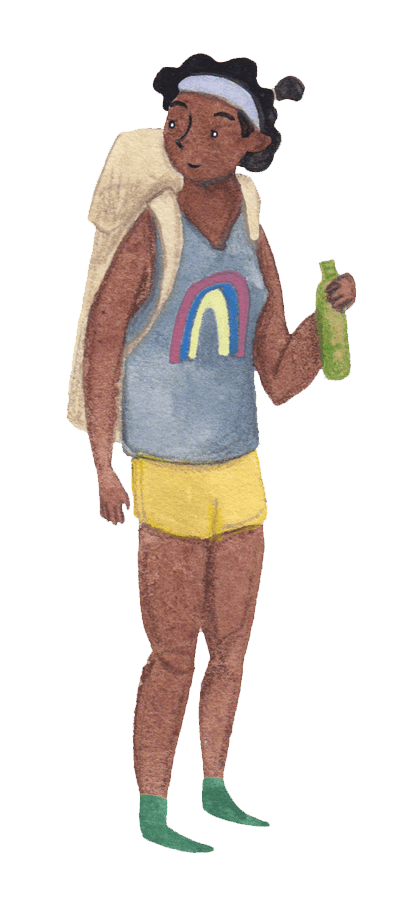 My father said, “People will be your biggest threat out there.” Then he continued, “But, there are people everywhere — and if this is something that you want to do, then you should do it.” He also told me when he dropped me off in Georgia that he would be more than happy to pick me up from the Trail — but only if I made it to Maine. Five months later I met my dad at Katahdin.
My father said, “People will be your biggest threat out there.” Then he continued, “But, there are people everywhere — and if this is something that you want to do, then you should do it.” He also told me when he dropped me off in Georgia that he would be more than happy to pick me up from the Trail — but only if I made it to Maine. Five months later I met my dad at Katahdin.
As soon as I left the Trail, I missed how beautiful and confident I felt when I was hiking. I had always thought that nature was beautiful, but I never saw myself as a part of nature — a part of all that beauty — until I started hiking. Plus, after hiking over two thousand miles, I based my self-worth less on how I looked and more on what I could do. There were times when I felt scared on the Trail, but it was never due to gender — or other people. Along the way, I realized that accepting fear and taking risks were an important part of life. The fact that my spine stiffened and my breath left at the shaking of a timber rattlesnake or that my heart rate increased as dark clouds gathered overhead made me realize that humans have hardwired physiological responses to danger that create healthy boundaries and help keep us safe.
“Hiking the Appalachian Trail gave me more confidence…Now, my greatest fear associated with the Trail is: What if I had never hiked it?!”
-Caet Cash
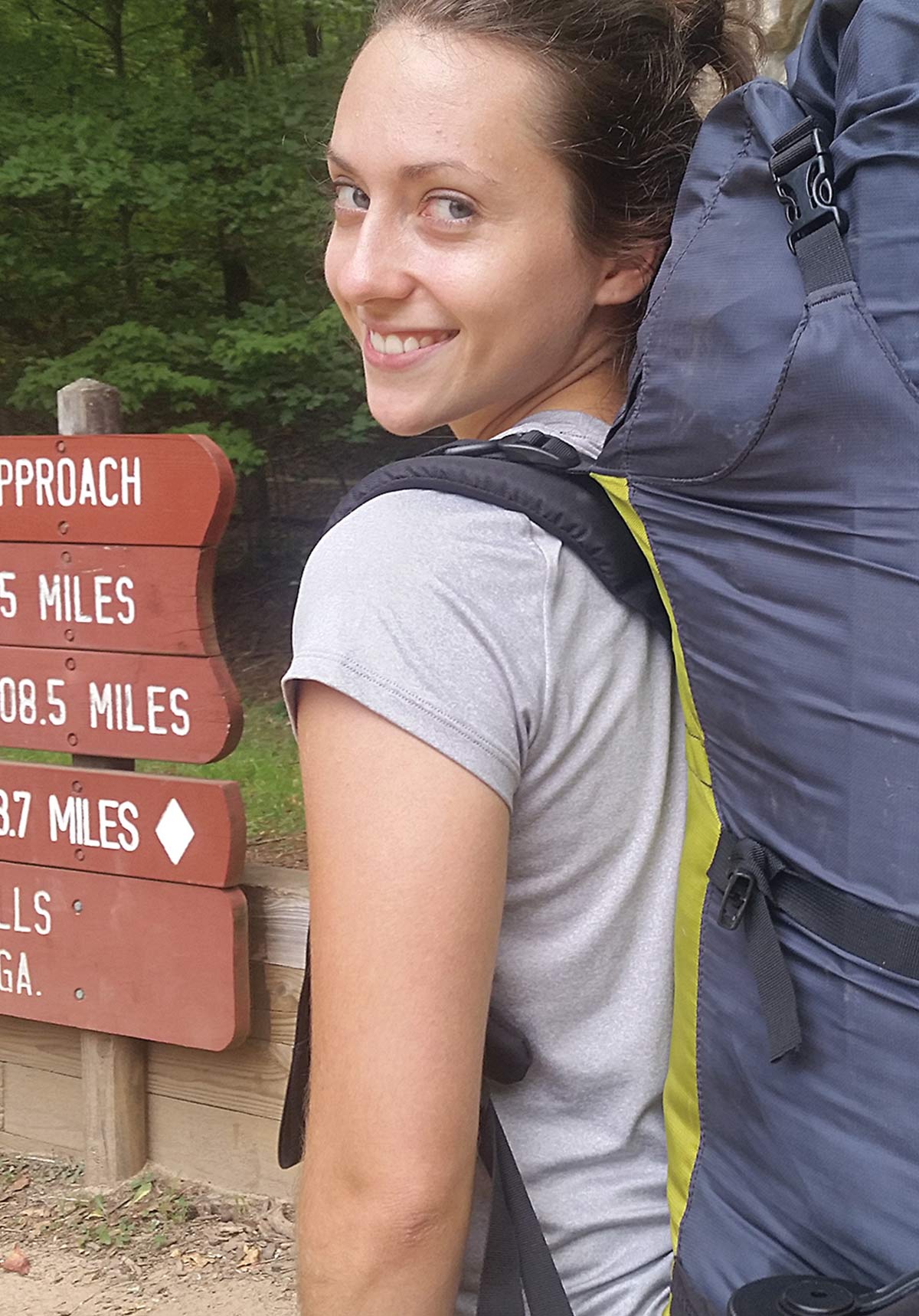
Caet Cash at the completion of her southbound thru-hike in Georgia.
When I asked my friend, Caet Cash, who also thru-hiked as a young female about whether or not she felt safe on the Appalachian Trail, she said, “I thought that I was going to die before I started.” Then she laughed. “I spent way too much time on the internet before I started. I read all the worst-case scenarios of what could happen and I started the Trail super paranoid. Then I got out there and after a certain amount of time just realized that nothing was going to happen — at least not the stuff I had been worried about.”
Instead of being worried about the people, Caet said, she wishes that she put a little more time planning her food through the Hundred Mile Wilderness. As a southbound hiker, she started at Katahdin and ran out of provisions a day before hitting Monson. “Did you ask other hikers for food?” I asked. “Oh, heck no!” She said. “I didn’t want to fulfill the stereotype of an unprepared female hiker. I thought, by hell and high water, I am not going to be that person. I am not going to be Cheryl Strayed.” Caet went on to explain that in her experience women are often sexualized or patronized on the Trail. “One of the reasons I wanted to hike southbound is because I didn’t want to be in a big group of dudes telling me what I could or couldn’t do. I definitely think southbound or Flip-Flop is the way to go for a thru-hike. There’s more solitude and it’s easier to avoid stereotypes. People told me that I shouldn’t hike by myself, but I am so glad I did. When you are alone, you learn how you naturally act or react without other people watching. I never felt super confident out there; but I also never quit. I didn’t think I was going to make it to the end until I reached Springer Mountain.”
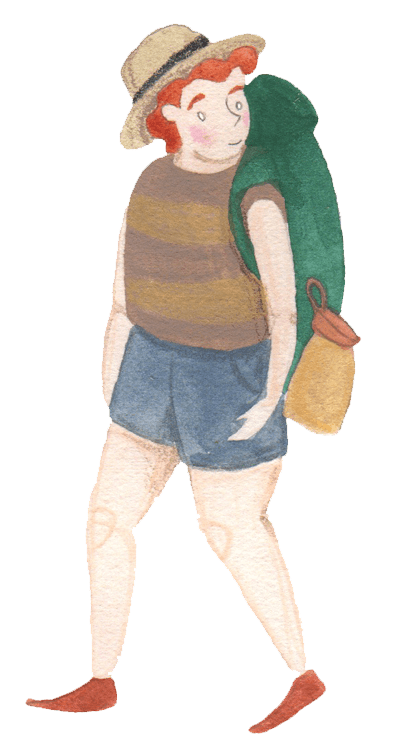 When I asked her how life has been different since hiking the A.T., she said, “Hiking the Appalachian Trail gave me more confidence. And it gave me a job. It has a great ROI (Return on Investment). The market is totally flooded with college grads and masters students, but having a thru-hike on your resume proves that you can work hard and persevere.”
When I asked her how life has been different since hiking the A.T., she said, “Hiking the Appalachian Trail gave me more confidence. And it gave me a job. It has a great ROI (Return on Investment). The market is totally flooded with college grads and masters students, but having a thru-hike on your resume proves that you can work hard and persevere.”
Then she added, “Now, my greatest fear associated with the Appalachian Trail is: What if I had never hiked it?! That’s a terrifying thought.”
For a number of hikers, the fear of regret outweighs all other fears. When I decided to test my limits and try for the overall unofficial speed record on the Trail, I was scared of failure but that didn’t compare to spending the rest of my life grappling with the weight of regret. On a particularly hot and humid evening on the rocks in Pennsylvania, I met another hiker and when he found out I was trying to set the record on the A.T. he quickly quipped, “You’re probably not even having fun out here.” To which I replied, “This is better than fun.”
I’m not a complete masochist (most of the time) and there were moments of lightheartedness and laughter that summer, but when I reached the end I felt reassured in my sentiment that I had experienced and discovered something more meaningful than fun. The moments that I am the proudest of in life are the ones that have been difficult and challenging. I am grateful for the circumstances that have forced me to grow.
“I always found what I needed on a hike…It put me in a place where I had to work things out. I had to figure out ways to get my work done, arrange childcare, and get my miles. It gave me the opportunity to think of myself as multifaceted.”
-Marcia Fairweather
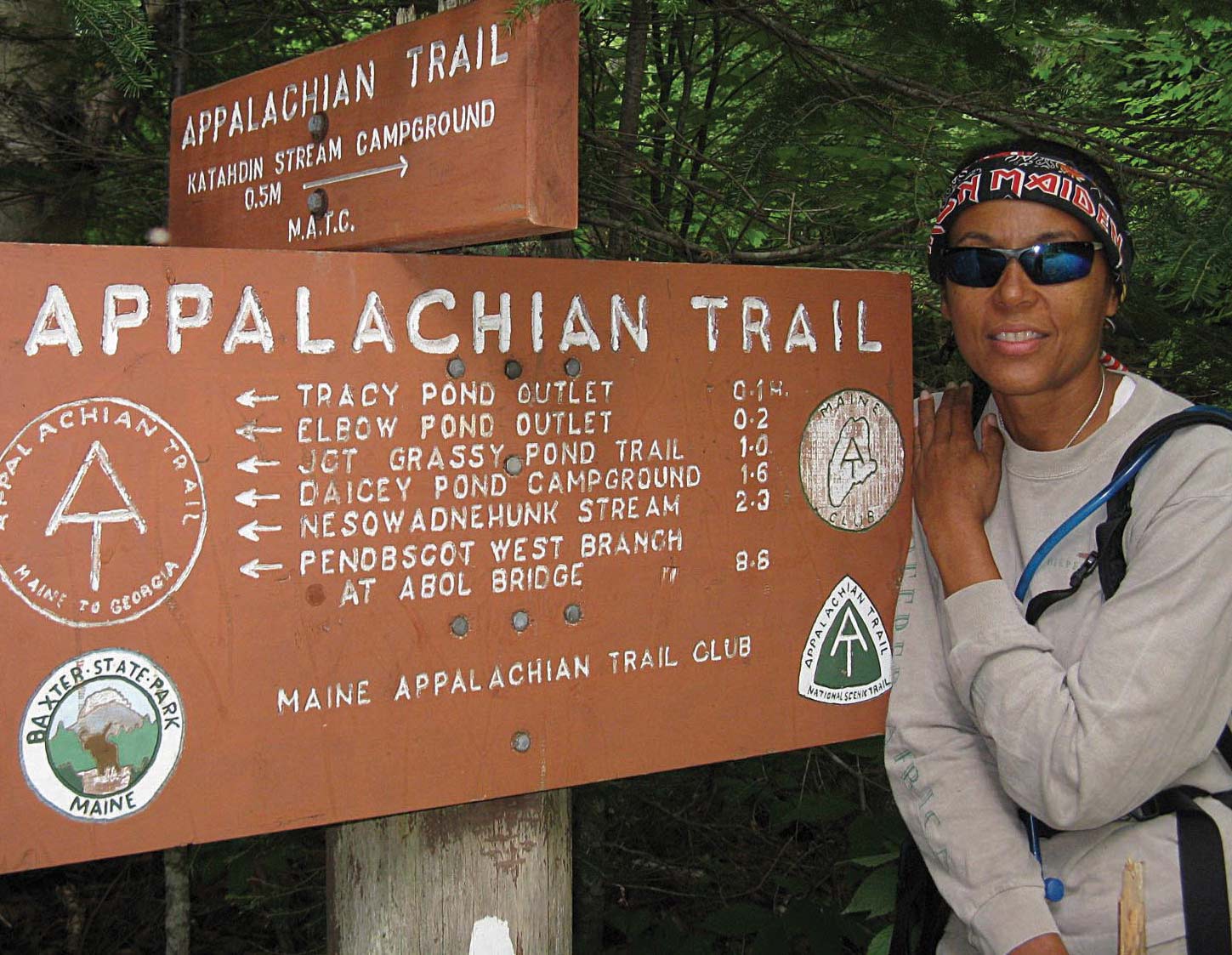
Marcia Fairweather on a Section Hike in Maine.
But you don’t have to try for a record, or even attempt a thru-hike to find transformation on the Trail. Marcia Fairweather is a section hiker and, in her words, “proud of it!” When I asked her about her experience with fear on the Trail she said that hiking the Appalachian Trail helped make her fearless. “My friends and family were very fearful for me.” She said. “I was terrified on my first hike but then nothing happened. It felt so peaceful in the woods and I started to wonder why I was scared.”
 She continued, “Really, one of the scariest things that happened to me didn’t have anything to do with other people or even wildlife. I was hiking through a field of cattle all by myself. Here I am, this city girl, and I’m nervous because the cows are so close to the Trail. Then all of a sudden, a horse came over the hill. It was charging towards me and I was terrified, but I told myself I was fearless. I stuck my hand out just like Diana Ross and the Supremes and I shouted, ‘Stop.’ The horse came to a stop and I thought, ‘I have power now.’ Growing up, I was shy but the Trail gave me this attitude. Now when people start acting crazy at work, I put my hand up and say, ‘Stop.’ The Trail taught me how to be honest.”
She continued, “Really, one of the scariest things that happened to me didn’t have anything to do with other people or even wildlife. I was hiking through a field of cattle all by myself. Here I am, this city girl, and I’m nervous because the cows are so close to the Trail. Then all of a sudden, a horse came over the hill. It was charging towards me and I was terrified, but I told myself I was fearless. I stuck my hand out just like Diana Ross and the Supremes and I shouted, ‘Stop.’ The horse came to a stop and I thought, ‘I have power now.’ Growing up, I was shy but the Trail gave me this attitude. Now when people start acting crazy at work, I put my hand up and say, ‘Stop.’ The Trail taught me how to be honest.”
Marcia started section hiking the A.T. when she was 35 years old and completed the footpath over a fifteen-year span. “The most I did at once was a full week,” she said. “But with the demands of work and parenting, usually I just went out for a few days. Every free weekend and holiday I was on the Trail.” Five years into her section hike, Marcia went through a divorce. It would have been easy to make excuses after that or scale back her adventures, but instead she said that she became a hiking fool. “Every time I had a hike I was dealing with some problem on the home front, but on the Trail all the answers to the problems became clear. And a lot of the programs or ideas I implemented at my job came from the Trail. I always found what I needed on a hike.” She continued, “It put me in a place where I had to work things out. I had to figure out ways to get my work done, arrange childcare, and get my miles. It gave me the opportunity to think of myself as multifaceted.”
Marcia said she didn’t see or feel much of a gender distinction on the A.T., but she laughed when she remembered taking a new boyfriend on the Trail. “He nearly passed out trying to keep up with me!” she said. When I asked her what advice she would give to hikers or women in general, she said, “I wasn’t prepared for all the good things. When you go out there, be ready for the good.”
I’ve found that the good on the Trail comes at many different places and different paces. I deeply appreciated the fact that I was able to hike when I was pregnant, nursing, and as a mother of young children. Now I spend most of my time on the A.T. with my five-year-old daughter and my one-year-old son. I love watching my daughter marvel at plants and rocks that I have subconsciously labeled as commonplace. And, I’ve learned that when my son starts crying, touching tree bark can help calm him down. I don’t care if my children ever hike the entire Appalachian Trail, but I hope they learn to value and enjoy the outdoors.
“I’m focused on encouraging older people to get out there. Hiking is a life sport. It doesn’t have an age barrier … There is a lot more going on than just putting one foot in front of the other. It’s people taking care of each other: sharing ideas and conversation. It’s my tribe.”
-Danny Bernstein
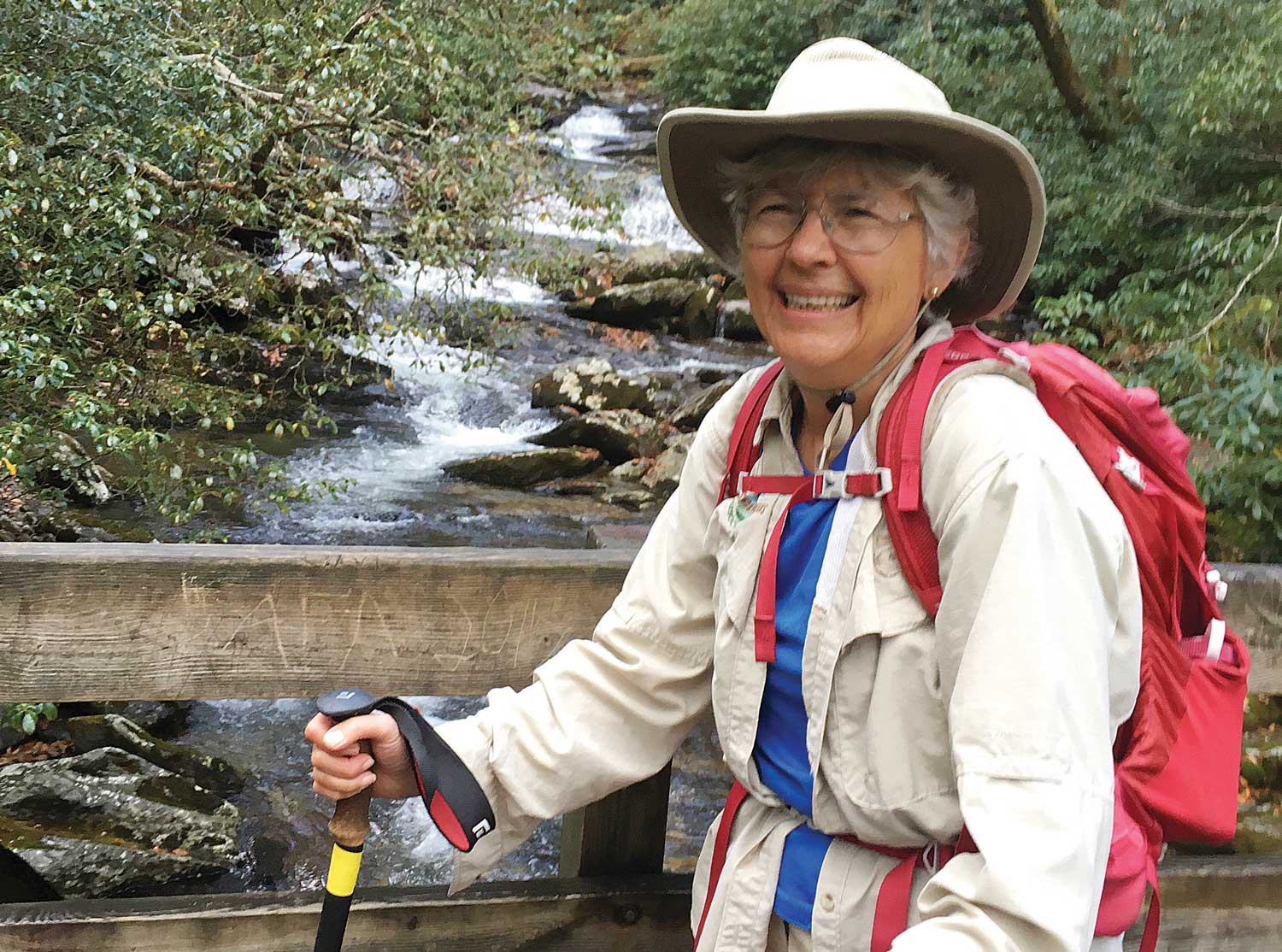
Danny Bersnstein hiking in the Smokies.
At age 71, Danny Bernstein also wants to share her love of the outdoors with her two granddaughters. “Grandparents are always showing their kids what they’re interested in.” She said, “For me, that’s hiking.” Danny stresses that if you want to get more kids out then you have to get more adults out. “I take my granddaughters with me,” she said. “But really I’m focused on encouraging older people to get out there. Hiking is a life sport. It doesn’t have an age barrier.”
Danny spends most of her time now seeking out day hikes for the Trail guidebooks she authors or participating in outings with her local Trail clubs.
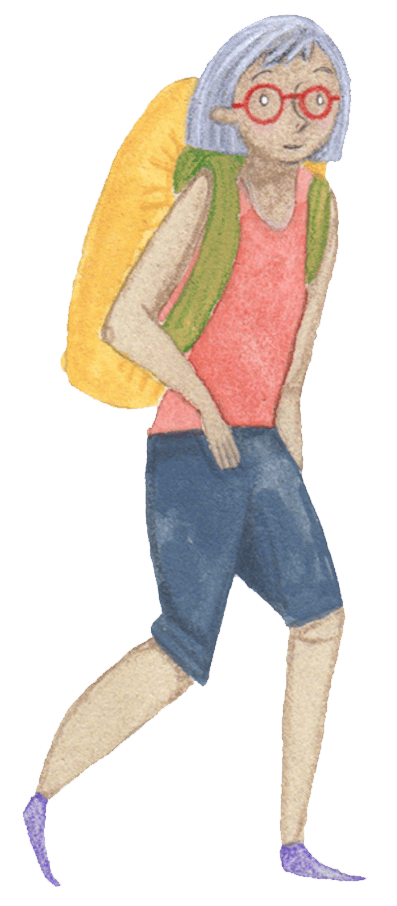 As a young newlywed and software developer living in New Jersey, Danny discovered hiking when her late husband Lenny found an ad in the newspaper for a local hiking club. “We went for our first hike and found ourselves in a group with people twice our age, she said. “They put us in our place. We could hardly keep up.” After her first hike, Danny claims she was hooked. She and her husband joined the local Trail club and attended as many outings as their full-time work — and later parenting — would afford. She said that when she started hiking she was more hesitant to hike alone and that initially Lenny carried more weight, but over time she said that everything became more equal. She suggested that the biggest obstacle preventing women from enjoying the outdoors might be as simple as having an honest conversation about hygiene and bathroom breaks on the Trail.
As a young newlywed and software developer living in New Jersey, Danny discovered hiking when her late husband Lenny found an ad in the newspaper for a local hiking club. “We went for our first hike and found ourselves in a group with people twice our age, she said. “They put us in our place. We could hardly keep up.” After her first hike, Danny claims she was hooked. She and her husband joined the local Trail club and attended as many outings as their full-time work — and later parenting — would afford. She said that when she started hiking she was more hesitant to hike alone and that initially Lenny carried more weight, but over time she said that everything became more equal. She suggested that the biggest obstacle preventing women from enjoying the outdoors might be as simple as having an honest conversation about hygiene and bathroom breaks on the Trail.
“As a trip leader, I always make sure to talk about using the bathroom before we get started,” she said. Since Lenny was a list maker, he tracked all their miles and soon the couple decided to try to summit all the 4,000-foot peaks in New Hampshire. After reaching every peak — and after raising their son — they turned their attention to the Appalachian Trail. After technically starting their section hike in 1973, they spent five years (between 1993 and 1998) completing the bulk of the path by piecing together day hikes and overnights. In 2001, the couple moved to Asheville and joined the Carolina Mountain Club. “We actually went on several outings with the club before moving because we wanted to be sure it was an active club and a good fit for us,” she said. As soon as they moved to town they became Trail maintainers and with time they were assigned to oversee a segment of the Appalachian Trail on the North Carolina – Tennessee border.
When Lenny died, Danny gained permission from the Forest Service to scatter a handful of his ashes on the section they maintained. But she also filled out paperwork for the Great Smoky Mountains National Park so she could scatter a few of his ashes on the part of the Appalachian Trail that coincides with the Mountains to Sea Trail (MST). “I love the A.T., the MST, and the Smokies,” she said. “That’s where I want a portion of my ashes scattered.”
Danny says that going on day hikes with the local Trail club means even more to her now that she is on her own. “It’s my social life.” She said. “There is a lot more going on than just putting one foot in front of the other. It’s people taking care of each other: sharing ideas and conversation. It’s my tribe.” And the reason Danny isn’t concerned about hiking alone is the same reason she prefers to be a part of a group. “I have never found anything but kindness and helpfulness on the Trail,” she said.
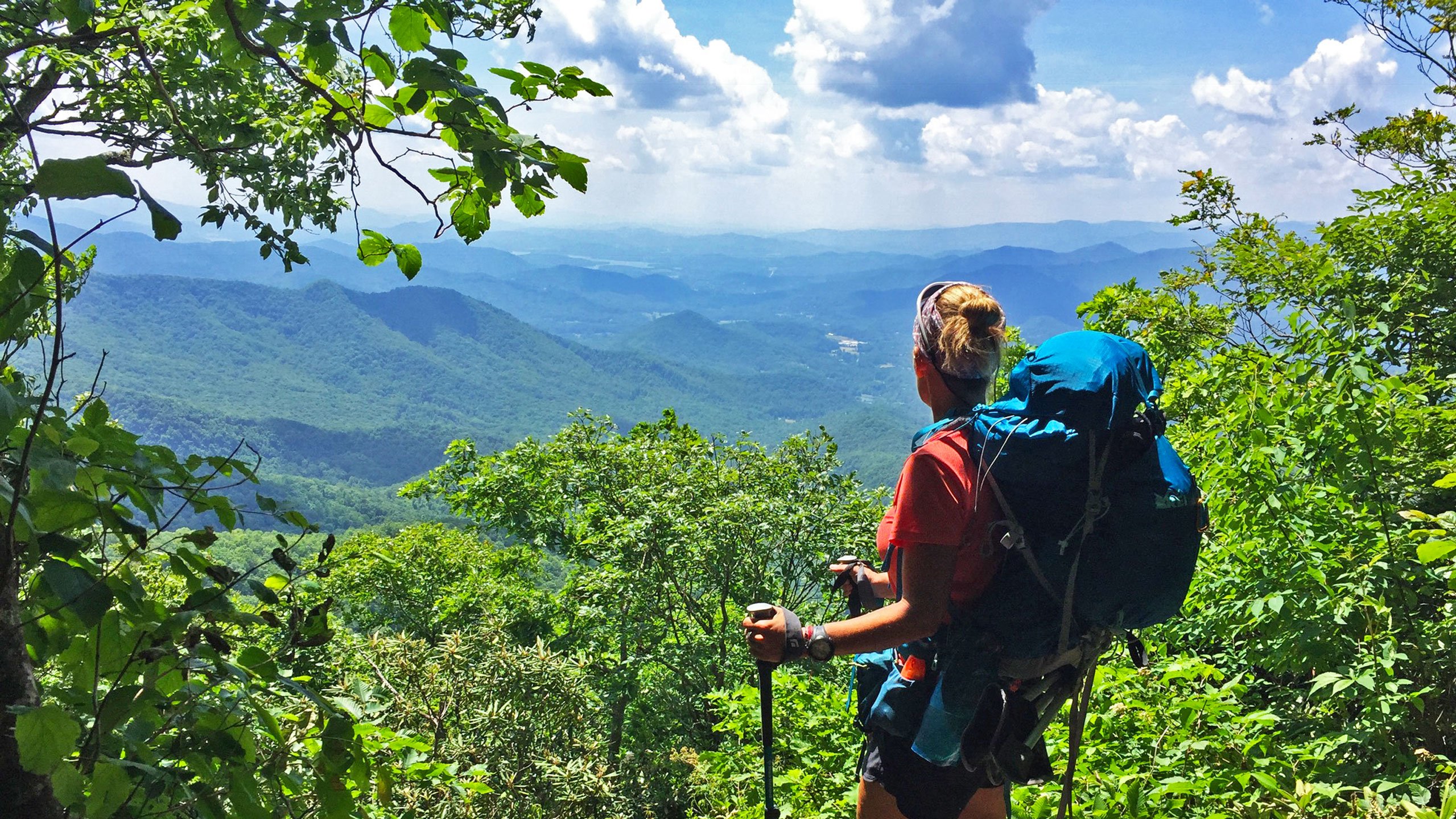
Photo by Katherine Kelly
The A.T. is a place for everyone at every phase of life. For women, the greatest fears about hiking are most often found to be misconceptions. Coming from a culture that differentiates sport by gender, women are often surprised at how well-suited they are for the physical demands of the Trail. Women have a higher Body Mass Index than men, we require lower daily caloric and hydration intake, and we have evolved to carry the weight of pregnancy (not to mention give birth). Those physiological traits make us very successful at carrying a pack up and down mountains for an extended period of time.
There are times on the Appalachian Trail when the gender gap disappears, but it doesn’t result in a state of forced androgyny. Instead, it provides women the feeling of being fearless, multifaceted, supported individuals who are fully aware of their sexual identity, their value, and their capabilities.

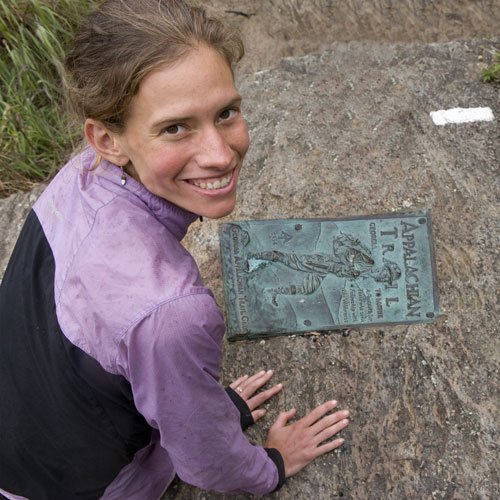 Jennifer Pharr Davis is an internationally recognized adventurer, speaker, author, and entrepreneur who has hiked more than 14,000 miles of trails on six different continents. In 2011, Jennifer set the overall fastest known time on the Appalachian Trail by finishing the 2,185-mile footpath in 46 days (an average of 47 miles a day). And she hasn’t slowed down since.
Jennifer Pharr Davis is an internationally recognized adventurer, speaker, author, and entrepreneur who has hiked more than 14,000 miles of trails on six different continents. In 2011, Jennifer set the overall fastest known time on the Appalachian Trail by finishing the 2,185-mile footpath in 46 days (an average of 47 miles a day). And she hasn’t slowed down since.
Learn more at jenniferpharrdavis.com.
This article is updated from its original version published in A.T. Journeys magazine. Become a member today to help fund great storytelling about the Appalachian Trail and the community of doers and dreamers that ensure the Trail is protected forever, for all.
Discover More
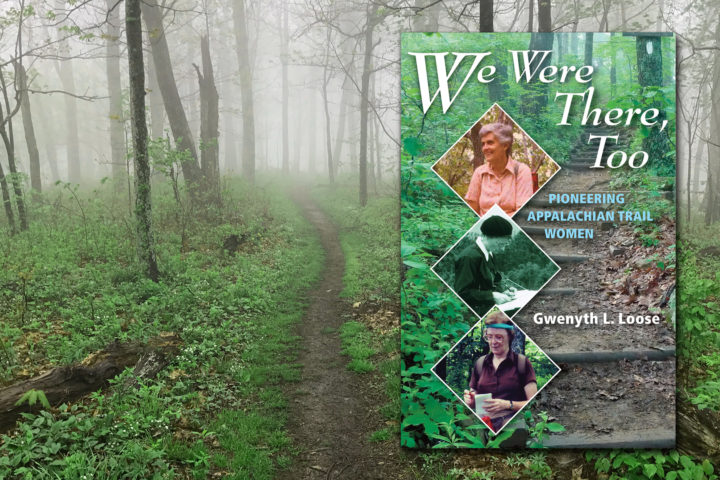
Official Blog
We Were There, Too
A review of the in-depth biography by Gwenyth L. Loose, which highlights three women whose dedication to the Appalachian Trail helped ensure it became a reality.
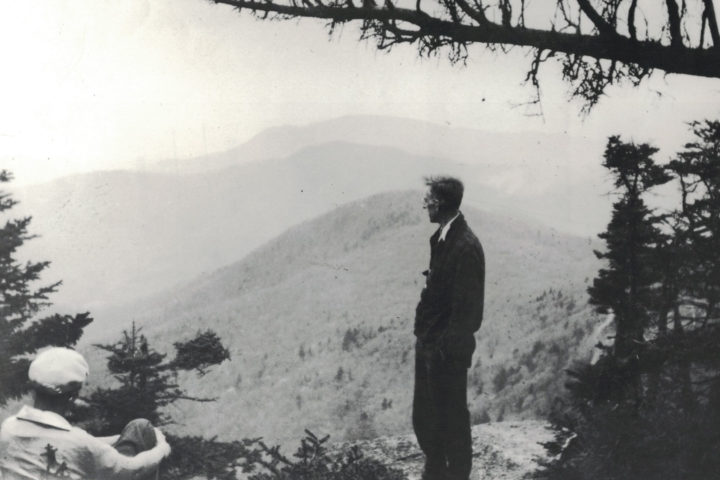
A History of Trail Building
ATC History
Just like the Appalachian Trail, our history is long. But throughout the years, the heart of our organization has remained the same: to protect and manage over 2,190 miles of the A.T. footpath and its surrounding landscapes.
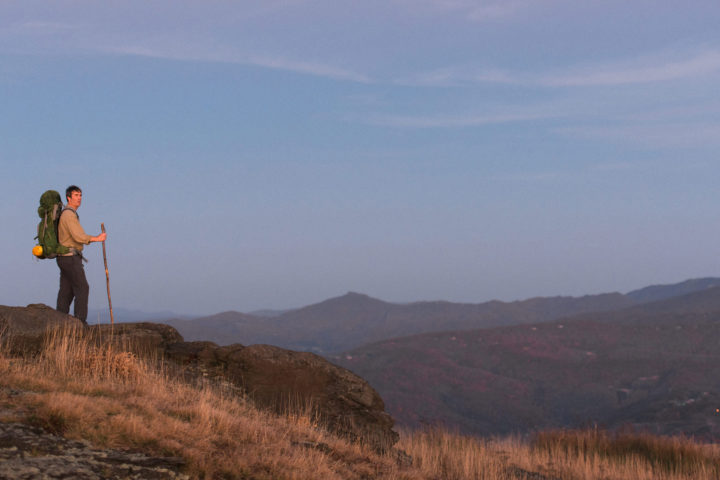
ATC's Official Blog
A.T. Footpath
Learn more about ATC's work and the community of dreamers and doers protecting and celebrating the Appalachian Trail.
